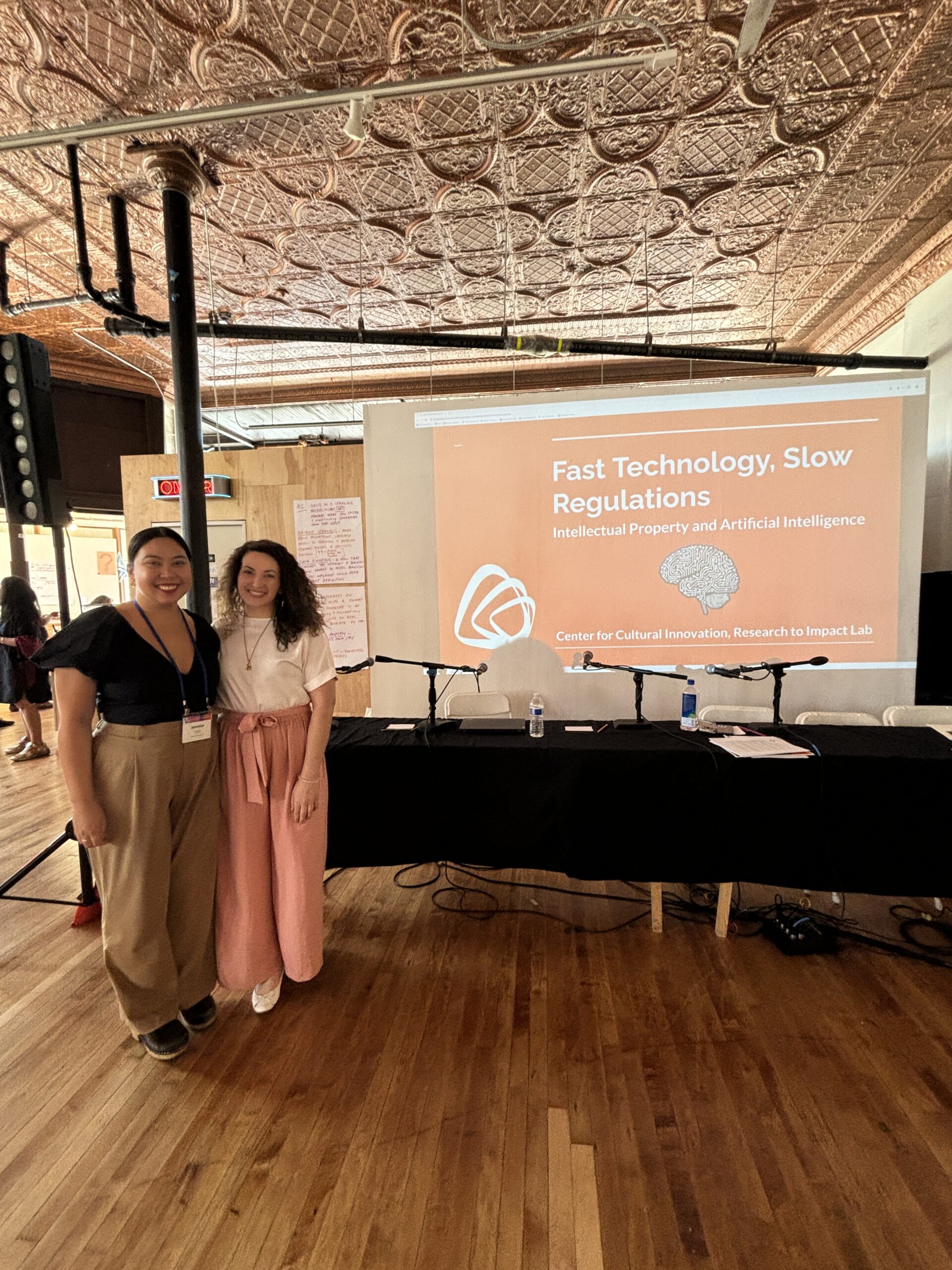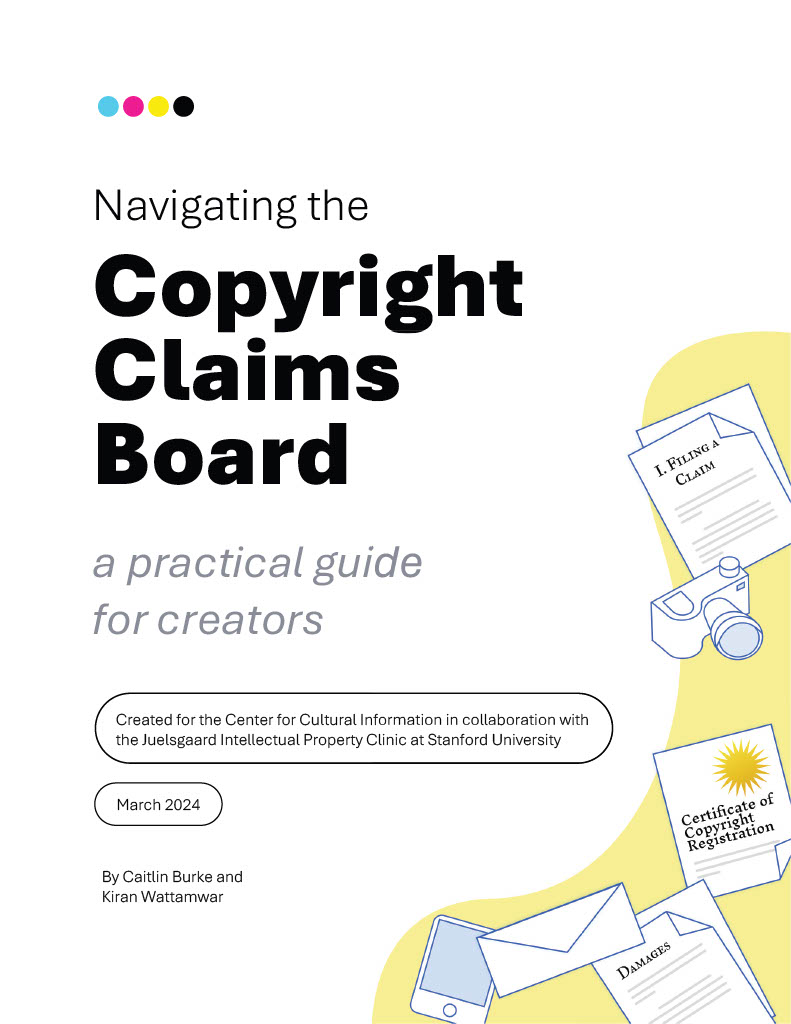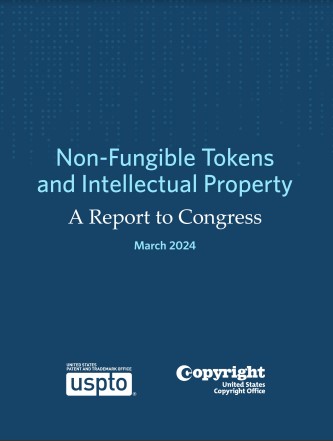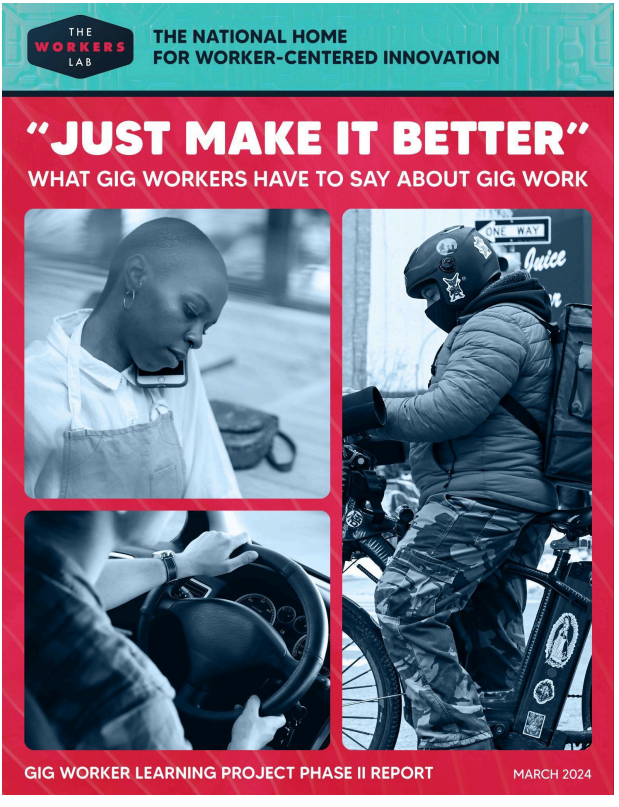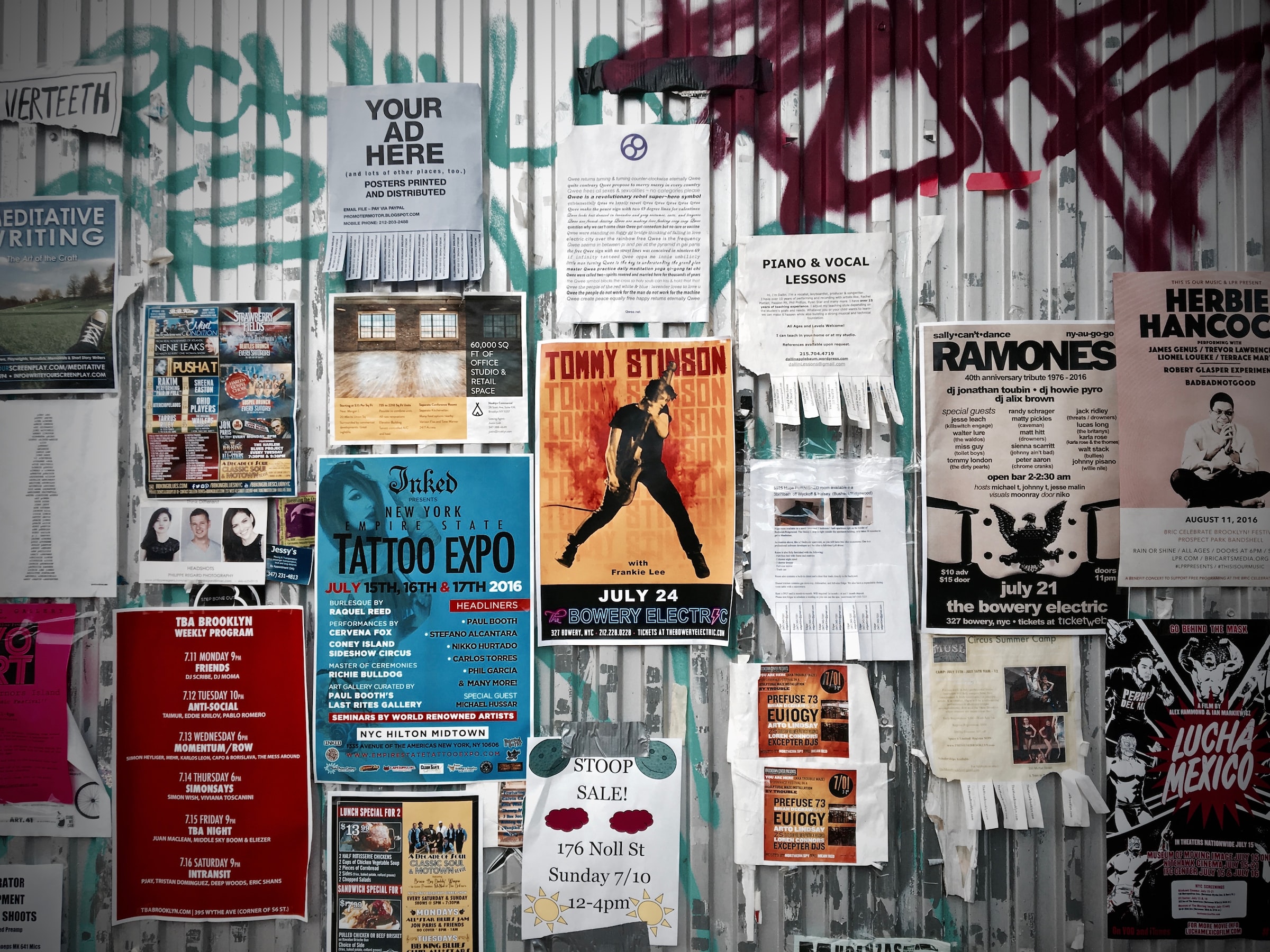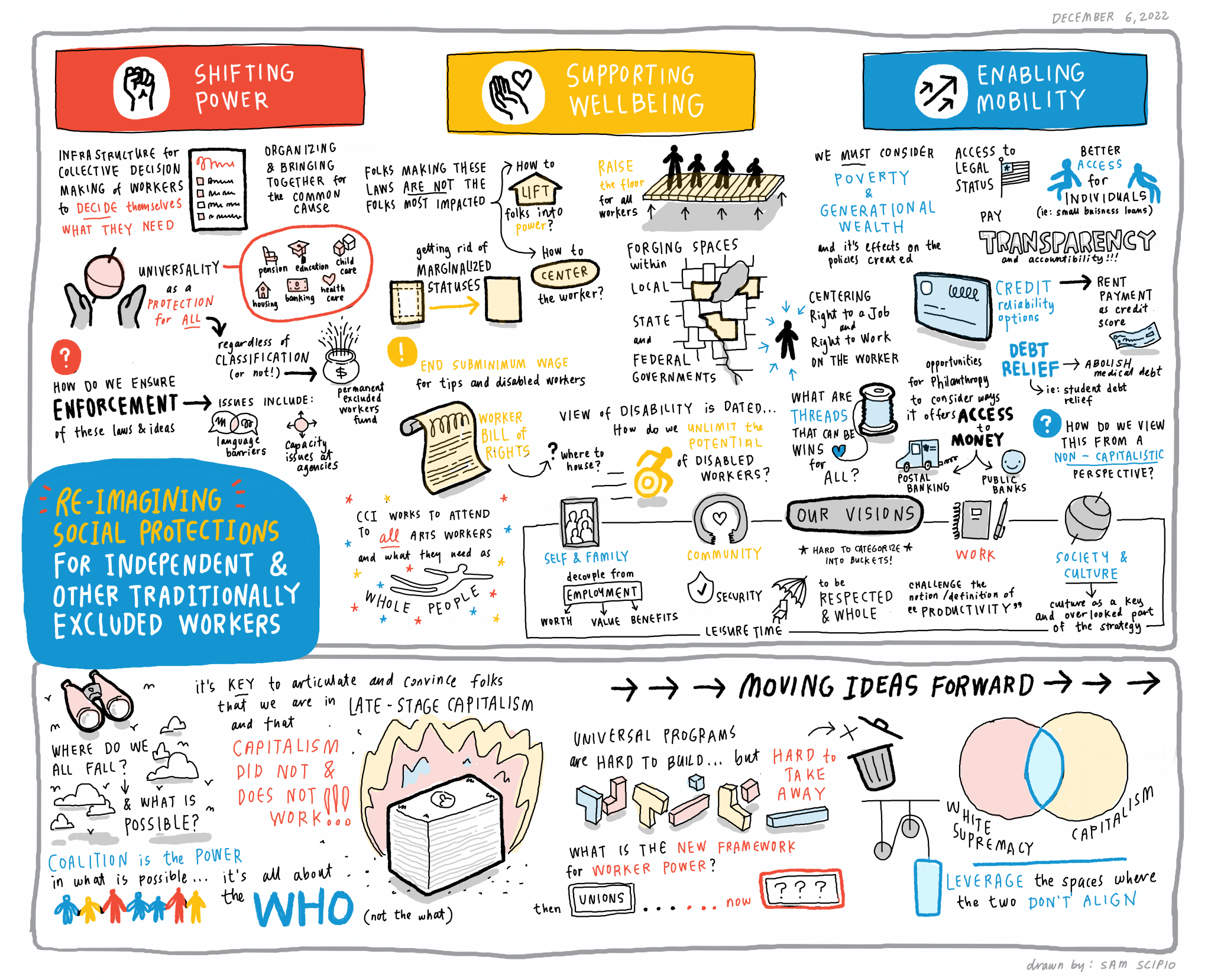Learnings and Ethical Considerations: A Resource for Arts Funders on Artificial Intelligence
Learnings and Ethical Considerations: A Resource for Arts Funders on Artificial Intelligence
A helpful resource for funders interested in moving ethically in the Artificial Intelligence (AI) space
As Artificial Intelligence (“AI”) transforms various sectors, it is crucial to evaluate both the pros and cons of AI-integrated projects. As arts’ funders, it is our duty to safeguard human creativity, ownership rights, and data privacy for creators and cultural communities in grantmaking processes.
Research to Impact Lab staff designed a workshop for the 2024 Grantmakers in the Arts' Support for Individual Artists Preconference: The Future is AI? Equipping Artists for the Digital Renaissance.
The R2I Lab’s workshop, Fast Technology, Slow Regulations: Intellectual Property and Artificial Intelligence, featured a discussion on current AI regulations as well as the ethical and social implications amid rapid technology adoption and limited data protection measures.
The workshop featured tangible and immediate protections that funders can support to address artists' intellectual property concerns and offered strategic possibilities for funders interested in supporting more structural changes impacting individual artists and vulnerable communities.
The workshop finished with a hands-on activity where funders could practice intentional discovery and due diligence on a project involving AI technology.
This resource expands on the workshop content, providing a comprehensive list of due diligence questions and implementation strategies for arts funders evaluating AI-integrated project proposals.
Navigating the Copyright Claims Board: A Practical Guide for Creators
Navigating the Copyright Claims Board: A Practical Guide for Creators
A guide for creatives to better understand the Copyright Claims Board (CCB). This resource was created through a partnership between The Center for Cultural Innovation (CCI) and Stanford University's Juelsgaard Intellectual Property and Innovation Clinic (JIPIC)
Thank you so much for sharing your story! We will use these examples to shape our advocacy, research, and resources on this topic, and may reach out to you for more information, or to let you know about opportunities to advance social and economic protections for all.
Navigating the Copyright Claims Board: A Practical Guide for Creators would not have been possible without the support of the William & Flora Hewlett Foundation and the Kenneth Rainin Foundation
Non-Fungible Tokens and Intellectual Property: A Report to Congress
Non-Fungible Tokens and Intellectual Property
A Report to Congress
The United States Patent and Trademark Office and United States Copyright Office
United States Patent and Trademark Office (USPTO) is the federal agency for granting U.S. patents and registering trademarks. The U.S. Copyright Office promotes creativity and free expression by administering the nation’s copyright laws and by providing impartial, expert advice on copyright law and policy for the benefit of all.
NFTs provide both opportunities and challenges for creators. Learn more about both in this new report to Congress.
A Report to Congress prepared by the United States Patent and Trademark Office and United States Copyright Office about how intellectual property laws apply to NFTs and specific intellectual property-related challenges arising from the use of NFTs. Public comment gathered and prepared by CCI’s Advocacy program is cited (previously, Sol Center for Liberated Work).
Gig Worker Learning Project: Phase Two Report
Gig Worker Learning Project: Phase Two Report
"Just Make It Better." What Gig Workers Have to Say About Gig Work
The Gig Worker Learning Project is a valuable resource for anyone seeking to better understand gig workers and the challenges they face.
Supported by CCI, led by The Workers Lab, and developed in collaboration with the Aspen Institute Future of Work Initiative, “Just Make It Better. What Gig Workers Have to Say About Gig Work” is a unique new piece of research on “gig” work, co-authored by active gig workers as participant-researchers. The goal of this project is to better understand gig work and workers directly from gig workers themselves, regarding their motivations, challenges, and solutions that would impact their lives personally and professionally.
Arts Worker Supports Issue Brief
Arts Worker Supports - Issue Brief
A summary of the public policies needed to build economic security for arts workers and microbusinesses
We worked with arts advocates to define a policy agenda that supports arts workers and microbusinesses.
In Spring/Summer of 2023, we worked with a voluntary group of arts worker advocates through the Cultural Advocacy Group to identify a set of policies needed to support the economic security of arts workers and microbusinesses. This issue brief is the result of our collective effort.
The brief summarizes the challenges people working in the arts face to access social protections, both as independent workers and microbusinesses, and outlines a series of policy reforms needed to build a safety net for all.
The brief is meant to be a resource for the field, so please feel free to use it in your own advocacy!
Convening Summary: Reimagining Social Protections For All
Convening Summary: Reimagining Social Protections For All
A Summary of the Virtual Convening on Reimagining Social Protections for Independent and Other Traditionally Excluded Workers
This December 2022 convening brought worker advocates and movement leaders together to reimagine social protections for all.
This summary describes the discussions at a virtual convening titled “Reimagining Social Protections for Independent and Other Traditionally Excluded Workers” and includes an artist's live visual notes taken during the event. We collaborated with the Urban Institute to host this convening in December 2022.
During this event, worker advocates, forward thinkers, and movement leaders imagined new systems of worker supports, protections, and power for those excluded from existing benefits and social protections, including independent contractors, temp workers, and workers in the arts.
